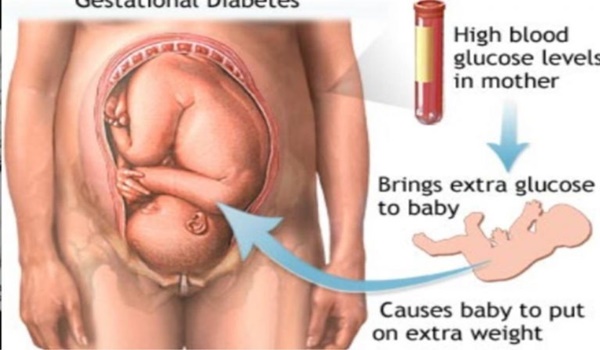When the body is unable to produce enough insulin, a person may develop diabetes. When a woman is pregnant her body may stop producing enough insulin. This results in the pregnant woman developing gestational diabetes.
Complications of Gestational Diabetes
For women with gestational diabetes there are some complications that may develop if she does not control her blood sugar levels. One of the most common side effects of gestational diabetes is babies that are larger in size.
Once the baby is born he/she may have low blood sugar and will need to be monitored during the first few days after birth. Premature births, preeclampsia, as well as other health related issues may arise as well.
How Diabetes May Affect a Child’s Brain
There are now studies that show how diabetes may affect children later in life. Women that do not control their blood sugar during pregnancy may affect the child’s memory and the damage that is done may not be reversible.
An ongoing study conducted by the University of Minnesota has shown that children born to diabetic mothers have consistent issues with their memory. The researchers believe that this may be caused by damage to the hippocampus which develops during the final trimester of pregnancy.
There is also new information being released that shows that pregnant women who develop gestational diabetes are more likely to have a child diagnosed with ASD (autism spectrum disorder). However, this study does not mean that autism is common for children that are born to women who develop gestational diabetes.
In addition, there have been findings that show that when women have had good control over their diabetes while pregnant tend to have children who perform as well in school as their peers or even better.
Women who did not have good control over their diabetes tend to have children who perform poorly in school and get lower grades when compared to those children who had mothers who did not have diabetes.
Importance of Controlling Diabetes During Pregnancy
These studies show the importance of controlling blood sugar levels during pregnancy. Diabetes control before and during pregnancy will lower the risk of birth defects, preterm delivery, preeclampsia, low blood sugar for the newborn, and having babies with a larger birth weight.
The most important findings of these studies are that women who are pregnant need to be educated on controlling their blood sugar levels. Pregnant women who receive appropriate education on the subject are more likely to follow the recommended diet and exercise program, which will help keep their blood sugar levels in check.
Women who do not receive education on the disease and how to control it are more likely to not follow an appropriate diet, which can result in many health issues not only for themselves, but for their babies as well.


